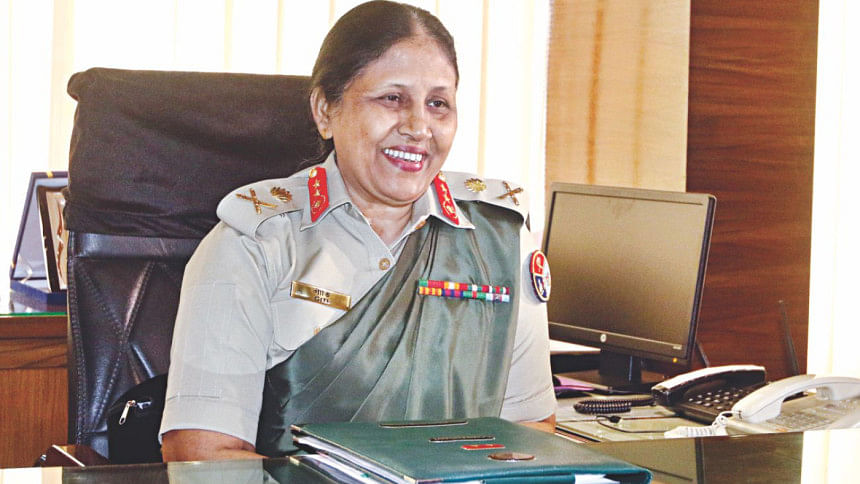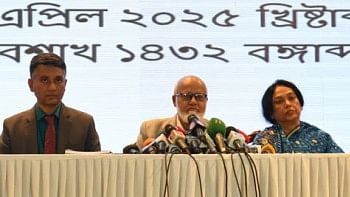Women can only go up from here

“Being a woman was a credit not a criterion,” is how Dr Susane Giti described becoming the first woman to achieve the rank of major general of the Bangladesh Army.
With this simple yet powerful statement delivered in an almost offhand manner to a journalist asking her whether her gender had anything to do with her promotion, Maj Gen Giti shattered the oft-assumed, reinforced notion that women cannot compete on a level-playing field as men.
“Military promotions take into consideration a wide range of criteria,” she added. She was not holding a representative post as a woman -- Giti won it fair and square in a race where she had to compete overwhelmingly with men.
The race began in 1986, when a young graduate from Rajshahi Medical College Hospital (RMCH) signed up to become an army doctor. “I had an aunt who was an army medical officer who inspired me greatly,” she said, speaking to journalists yesterday in her office at the Armed Forces Institute of Pathology (AFIP).
When asked about her most recent success, she spoke about being able to set up a bone marrow transplant facility at Combined Military Hospital (CMH).
“Chemotherapy can only go so far in treating blood cancer. The cure lies in bone marrow transplant. This process is very expensive and most people travel abroad to get it done,” explained Giti.
Giti's current research interests revolve around genetics. “We have a genetic lab at AFIP that we use for research and diagnosis,” she added, “and we are researching into autism, genetic disorders and congenital diseases.”
She was involved with a research that used a technique called karyotyping (a process for examining the exact chromosomal make up of a person) to investigate the frequencies of different chromosomal aberrations in patients with genetic disorders. The research was published in the Journal of Armed Forces Medical College.
Giti was also a part of a team of doctors who diagnosed the first case of a congenital disease called Camurati-Engelmann's syndrome in the country in 2005. The disease was diagnosed in a one-year-old boy. The symptoms the boy showed were bowing legs, difficulty in walking and delayed development.
Giti's past researches include studying blood abnormalities in HIV patients, how and why one malaria parasite causes a patient's blood platelets to decrease while another does not, among others.
Beyond cutting-edge research, Giti also did her time as a United Nations Peacekeeper in 2007. “I went to Liberia, and, in fact, I was among the first group of women from Bangladesh to do so,” she said.
“We hosted free clinics in Liberia and taught courses on basic pathology and nursing,” she added.
Here is yet another thing she became the first woman in the country to do: get an FCPS degree in Hematology in 1996.
“Back when we joined the army, women were only recruited in the medical field. Now women are even being taken in as sainik (soldiers),” observed Giti, “so women can only go forward from here and we will see more successes in the future.”
Discounting her, the highest position that women hold in the army currently is of the Brigadier rank.
Dr Giti is currently serving as head of the Pathology Department of Armed Forces Medical College.

 For all latest news, follow The Daily Star's Google News channel.
For all latest news, follow The Daily Star's Google News channel. 



Comments